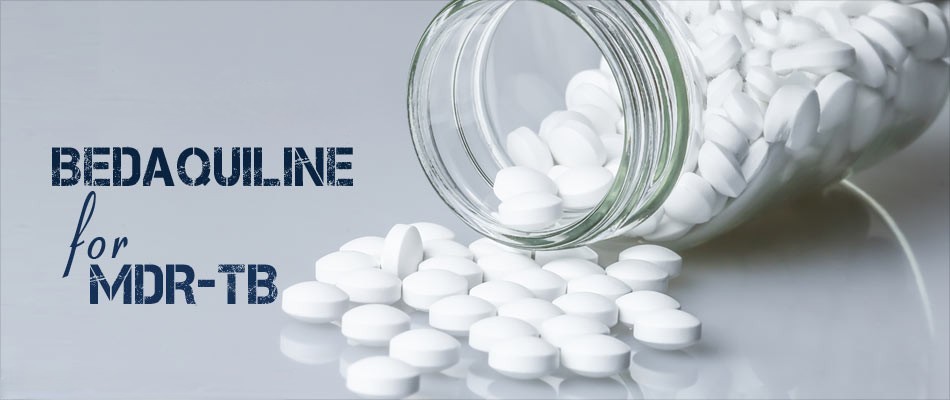Description

Copyright infringement not intended
Context: Johnson & Johnson (J&J)'s patent on bedaquiline expired on July 18, 2023, but the company has filed additional patents to extend its exclusivity until 2027 in many low- and middle-income countries where DR-TB is prevalent.
Details
- Bedaquiline is a key medicine for treating drug-resistant tuberculosis (DR-TB). However, its access and affordability are limited by the patent monopoly of Johnson & Johnson (J&J), the pharmaceutical company that developed it.
- J&J's patent on bedaquiline expired on July 18, 2023, but the company has filed additional patents to extend its exclusivity until 2027 in many low- and middle-income countries where DR-TB is prevalent.
- This move has sparked public criticism and legal challenges from health activists and civil society groups who demand that J&J should not block generic competition and lower prices for bedaquiline.

Bedaquiline
About
- Bedaquiline is an antibiotic drug used in the treatment of tuberculosis (TB), particularly in cases of multidrug-resistant tuberculosis (MDR-TB) and extensively drug-resistant tuberculosis (XDR-TB). It is considered a groundbreaking medication in the fight against drug-resistant TB, which is a major global health concern.
Key points about Bedaquiline
- Mechanism of Action: Bedaquiline belongs to a class of antibiotics known as diarylquinolines. It works by inhibiting an enzyme called ATP synthase, which is essential for the production of energy in the bacterium Mycobacterium tuberculosis, the causative agent of TB. By disrupting energy production, Bedaquiline effectively kills or inhibits the growth of the TB bacteria.
- Targeted Use: Bedaquiline is primarily reserved for the treatment of drug-resistant forms of tuberculosis when other first-line and second-line TB drugs are not effective. It is not a first-line drug for the standard treatment of drug-sensitive TB.
- Approval and Usage: Bedaquiline was first approved by the United States Food and Drug Administration (FDA) in 2012 and has since been recommended by the World Health Organization (WHO) as part of a comprehensive TB treatment regimen for drug-resistant cases.
- Treatment Regimen: Bedaquiline is administered orally and is typically used in combination with other antibiotics to form a multidrug regimen. The specific treatment plan depends on the type and severity of drug resistance in the patient's TB infection.
- Side Effects: Common side effects of Bedaquiline may include nausea, headache, joint pain, and chest discomfort. Healthcare providers need to monitor patients closely during treatment to manage any adverse reactions and ensure treatment efficacy.
- Importance in TB Control: Drug-resistant TB poses a significant challenge to global TB control efforts. Bedaquiline's introduction marked a major advancement in the fight against MDR-TB and XDR-TB, providing a crucial option for patients with limited treatment choices.
- Precautions and Monitoring: Due to its potential effects on the heart's electrical activity, Bedaquiline requires careful monitoring during treatment. Patients receiving this drug should undergo regular electrocardiogram (ECG) tests to assess any changes in heart rhythm.
Why is bedaquiline important?
- Bedaquiline is the first new drug for TB in nearly half a century. It has shown better efficacy and safety than the older drugs used for DR-TB, which have serious side effects and low cure rates.
- It can shorten the treatment duration and improve the outcomes for patients with DR-TB, a form of TB that does not respond to standard antibiotics.
- DR-TB is a major global health threat, as it contributes to the spread of antimicrobial resistance and poses a risk of infection to millions of people.
- According to the World Health Organization (WHO), about 500,000 people developed DR-TB in 2019, and only 39% of them were successfully treated.
How much does bedaquiline cost?
- J&J charges $272 for a six-month course of bedaquiline when it is procured through the Global Drug Facility (GDF), a non-profit entity that supplies TB drugs to countries. This price is still too high for many patients and health systems, especially in low- and middle-income countries where most of the DR-TB cases occur.
- A recent study estimated that generic manufacturers in India could produce bedaquiline for as low as $48-$102 per six-month course, which would make it more affordable and accessible for patients in need. However, J&J's secondary patents prevent generic entry and price reduction in many countries.
What can be done to increase access to bedaquiline?
- Supporting legal opposition against J&J's secondary patents in countries like India, South Africa, Brazil, Russia, China, Indonesia, and Ukraine.
- Advocating for the use of public health safeguards such as compulsory licenses or government use orders to override J&J's patents and allow generic production or importation of bedaquiline.
- Demanding that J&J should share its data and know-how on bedaquiline with the Medicines Patent Pool (MPP), a voluntary mechanism that facilitates licensing agreements between patent holders and generic manufacturers.
- Calling for increased funding and political commitment from governments and donors to scale up DR-TB diagnosis and treatment, including the use of bedaquiline as part of WHO-recommended regimens.
.jpg)
Conclusion
- Bedaquiline is an important antibiotic drug used to treat multidrug-resistant and extensively drug-resistant tuberculosis cases. It offers a new therapeutic option for patients facing limited treatment choices due to drug-resistant strains of TB. As with any medication, its use requires careful monitoring and adherence to treatment guidelines to ensure patient safety and effectiveness in combating drug-resistant TB.
Must Read Articles:
Patents: https://www.iasgyan.in/daily-current-affairs/patent
Tuberculosis: https://www.iasgyan.in/daily-current-affairs/tuberculosis
TB: https://www.iasgyan.in/daily-current-affairs/tb
|
PRACTICE QUESTION
Q. What is the primary use of bedaquiline?
A) Treatment of malaria
B) Treatment of tuberculosis (TB)
C) Treatment of HIV/AIDS
D) Treatment of influenza
Answer: B
Explanation: Bedaquiline is an antibiotic drug used in the treatment of tuberculosis, specifically in cases of multidrug-resistant tuberculosis (MDR-TB) and extensively drug-resistant tuberculosis (XDR-TB).
|
https://epaper.thehindu.com/ccidist-ws/th/th_delhi/issues/44837/OPS/GC0BH87EI.1.png?cropFromPage=true











